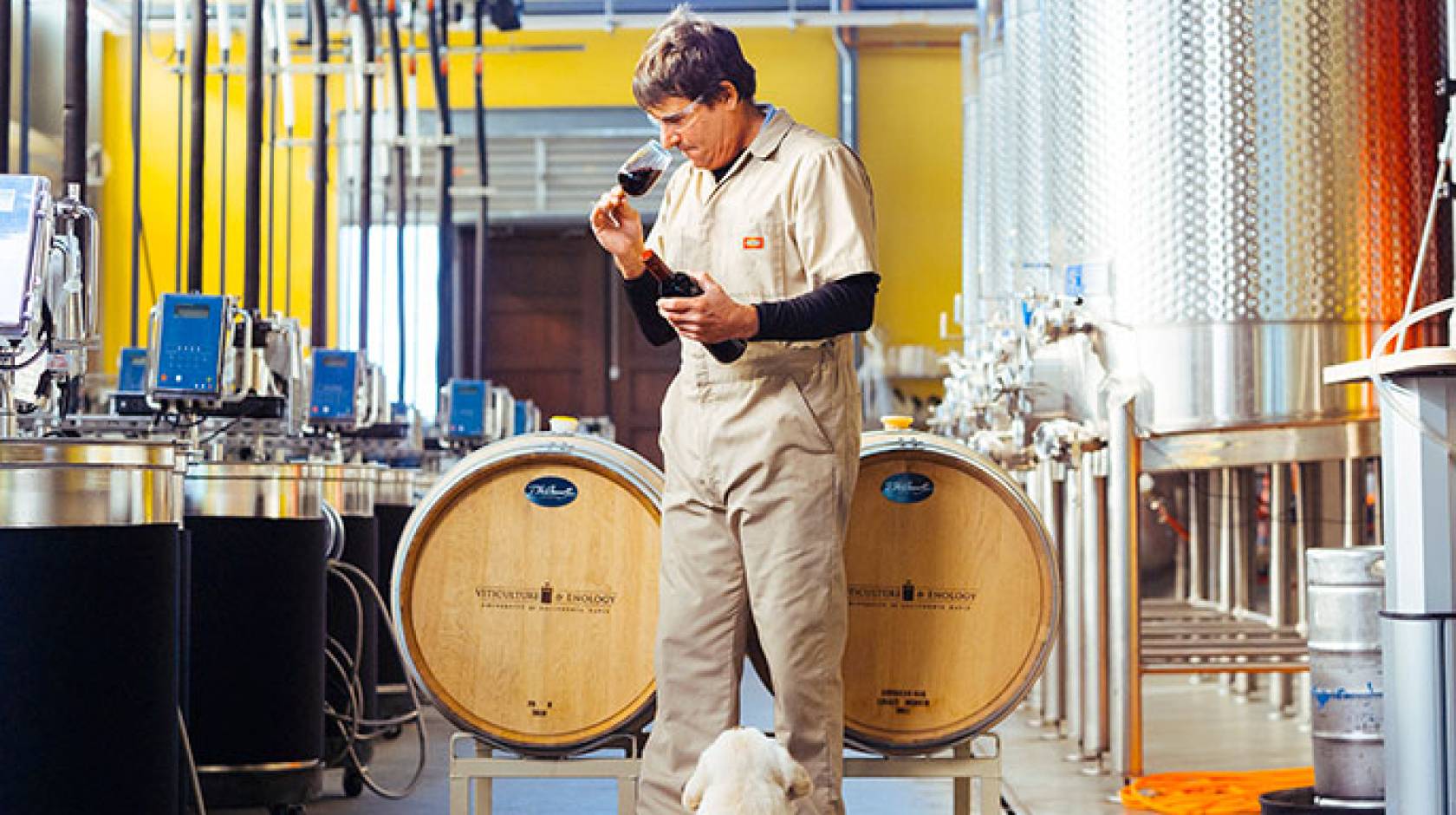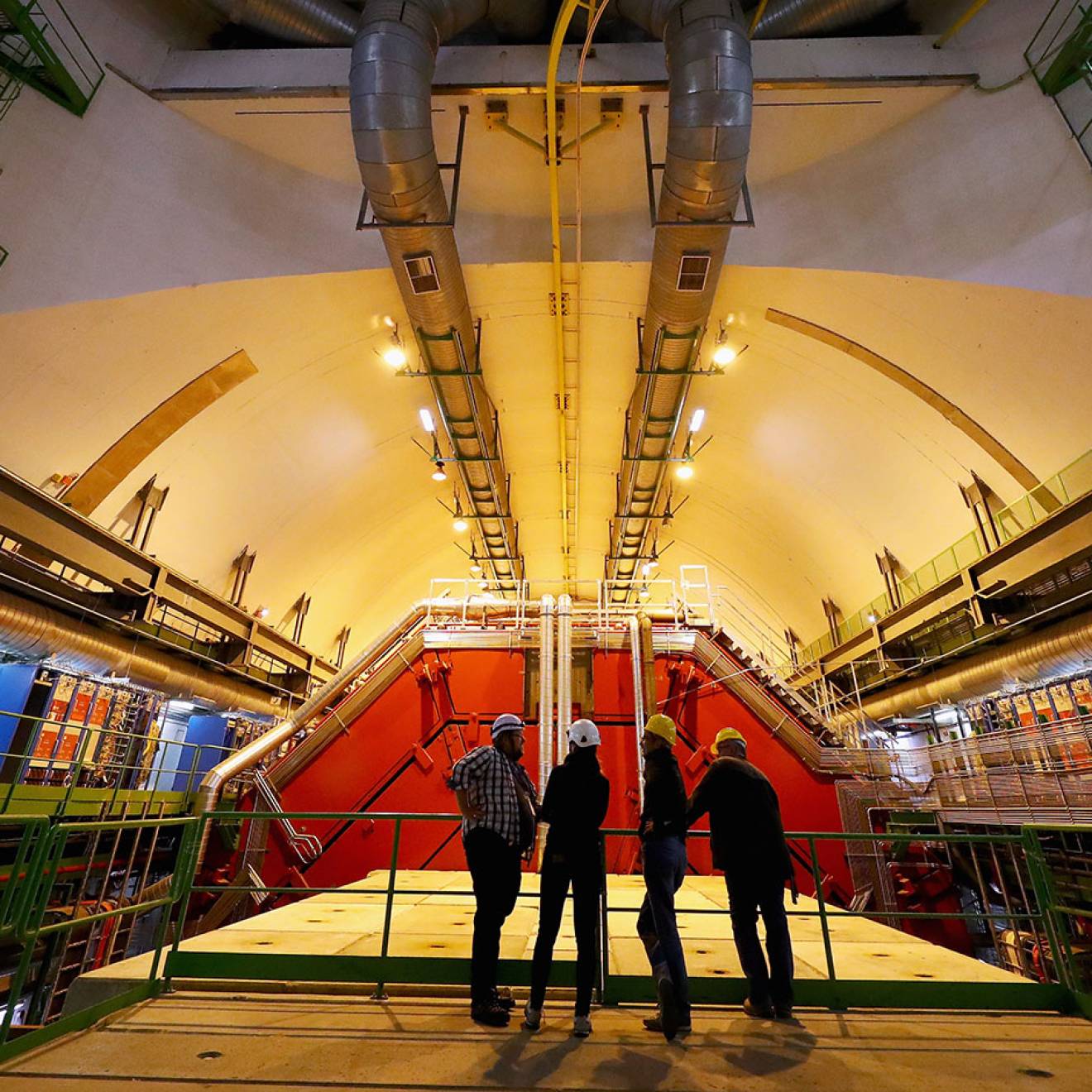Harry Mok, UC Newsroom

Innovative projects on eight UC campuses won 2014 Energy Efficiency and Best Practice Awards from the California Higher Education Sustainability Conference.
The awards highlight achievements from UC and California State University campuses that are models for sustainable operations.
Award winners will be honored and this year’s UC Sustainability Champion will be named at the conference, which is June 16-20 at San Diego State. A new award category this year is Sustainability in Academics, which highlights education and the important role faculty play in campus sustainability.
UC’s award winners this year are:
Overall Sustainable Design: The Jess S. Jackson Sustainable Winery Building at UC Davis is a research facility designed to utilize sunlight and natural air to minimize energy use. It is heated and cooled by passive strategies that include nighttime ventilation and an underground thermal rock bed. Solar power, energy efficient lighting and daylight keep rooms lit. Its water system treats and reuses wastewater, and harvests rainwater to achieve near-net zero water use.
HVAC Design/Retrofit: The Plant and Environmental Science Lab energy retrofit at UC Davis incorporates occupancy sensors installed for lighting to run heating and cooling systems more efficiently. The air system will run on occupancy data rather than a time schedule. The system is projected to reduce electricity use by 34 percent and natural gas consumption by 38 percent.
Lighting Design/Retrofit: Lighting in labs at UC Santa Cruz’s Physical Sciences building were converted to an automated system that includes wireless controls, daylighting sensors and LED lights. The system is projected to save more than $34,500 annually and pay for itself in five years.
Waste Reduction: UC Santa Cruz changed its collection system to be based on weight rather than volume and frequency as a way to encourage waste reduction. The system uses database software, GPS technology and scaling software to weigh refuse and recycling materials as they are collected. Campus clients who produce lighter loads of landfill waste pay less for collection.
Waste Reduction honorable mention: An outreach program at UC Irvine improved the landfill waste diversion rate for large public events from less than 5 percent to 90 percent. During events, recycling and composting bins accompany trash receptacles, and student volunteers are stationed nearby to help people place their waste in the proper place.
Sustainable Foodservice: The Bruin Plate is a sustainability-themed dining hall at UCLA that encourages students to practice healthy and mindful eating habits. Twenty-eight percent of Bruin Plate’s food purchases are from sustainable sources, surpassing the UC goal of 20 percent. An average of 2,400 patrons are served each day, and they dine in a sustainably constructed facility with energy efficient lighting, flooring made from recycled materials, locally made tables and low-water plants that are native to California. Tableware is made from a composite that includes bamboo, a rapidly renewable material.
Transportation: The UC Davis Bicycle Program received two of the highest honors awarded by the League of American Bicyclists by wining Platinum designation as a Bike Friendly University and a Bike Friendly Business. The campus employs a full-time coordinator who tracks upgrades to bicycle lanes, parking racks and other bike facilities. The campus also has a Bicycle Education and Enforcement Program and offers an online bicycle safety course.
Water Efficiency/Site Water Quality: UC San Francisco implemented a water conservation program to retrofit or replace equipment across multiple research labs at two sites, reducing water use by 3.6 million gallons per year.
Student Energy Efficiency: The Cold Water Wash Campaign at UC Santa Cruz’s College Eight Dorms was an eight-week outreach campaign and competition to get residents to reduce natural gas use. The program will be expanded to other residence halls in the future.
Student Sustainability: UC Merced’s Water Battle educates and challenges students to conserve water through a month-long residence hall competition. The program began in 2011 and has successfully created a water conservation culture on campus. Participants keep conserving water even after the competition ends. Three competitions have saved 170,000 gallons of water.
Monitoring Based Commissioning: The system implemented at UC San Diego’s Clinical Teaching Facility at Hillcrest Medical Center included repairing or replacing outside air economizers, installing new control sequences, repairing leaking valves, and reducing simultaneous heating and cooling. The project has reduced electricity use by 5 percent, chilled water use by 47 percent and steam use by 63 percent.
Sustainability Innovations: UC Berkeley met its goal of reducing greenhouse gas emissions to 1990 levels one year ahead of the campus’ schedule and seven years ahead of the UC systemwide policy goal. The achievement is due in large part to the Cal Climate Action Partnership, a coalition of faculty, campus leadership, staff and students that formed in 2006 to reduce greenhouse-gas emissions. Since 2006, transportation fuel reduction efforts have combined with hundreds of energy efficiency projects to reduce emissions while the partnership also has helped create a campus culture that embraces sustainability.
Sustainability in Academics: UC Merced’s Marketing for Sustainability course project teaches students to develop marketing materials to promote water and energy saving behaviors in college dorms. The project is offered through introduction to professional writing and management communication classes. It is an example of how sustainability-related topics can be integrated into different disciplines.
The University of California’s Policy on Sustainable Practices helps make all UC campuses among the greenest in the country.
The policy guides campuses in nine areas: green building, clean energy, sustainable transportation, climate protection, sustainable operations, waste reduction and recycling, environmentally preferable purchasing, sustainable foodservice and sustainable water systems.
A primary goal is to reduce green house gas emissions to 1990 levels by 2020. UC President Janet Napolitano wants to go even further. She has called for UC to achieve complete carbon neutrality by 2025. She also has said that UC will cut its water use by 20 percent by 2020.

